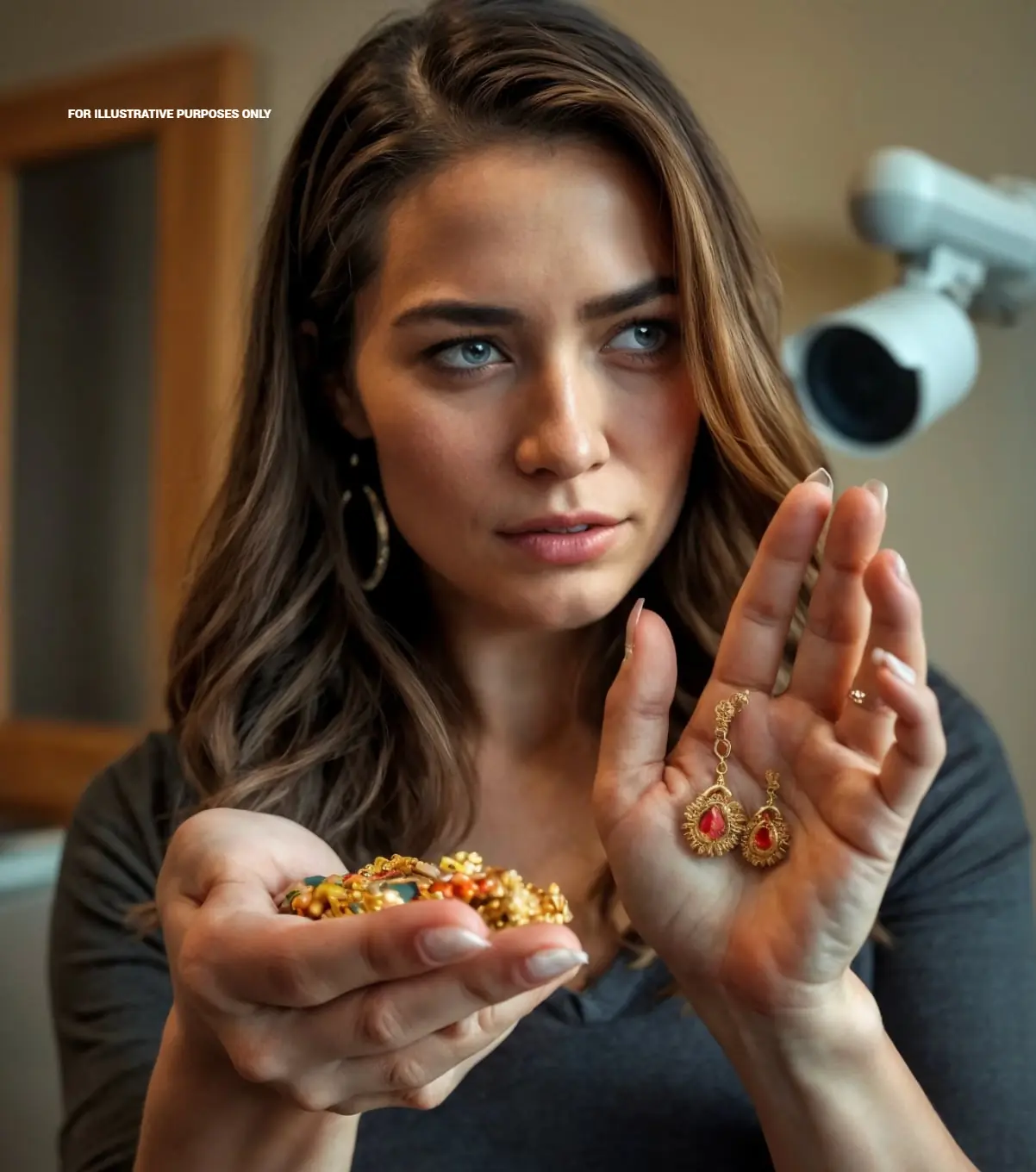
The medical staff couldn’t take their eyes off the newborn, but within a minute they faced an unexpected moment that gave everyone present goosebumps.

The Birth of Josiah
The maternity ward at Saint Thorn Medical Center was unusually full that morning. Though the birth itself was entirely routine by medical standards, the room buzzed with a tension usually reserved for emergencies. No fewer than twelve doctors were present, along with three senior nurses and even two pediatric cardiologists. Not because of a complication. Not due to a high-risk delivery.
But because the baby’s scans had confused them all.
The fetal heartbeat was unlike anything they had ever seen — mesmerizingly regular, strong and fast, but disturbingly steady. Too steady. It pulsed like a metronome, mechanical in its precision. At first, they suspected equipment failure. Then they blamed faulty software. But after three separate ultrasounds and confirmation from five seasoned specialists, the consensus was clear: the data was correct. The case wasn’t dangerous… but it was undeniably unusual.
Amira, the mother-to-be, was twenty-eight. She was in good health. Her pregnancy had unfolded with grace and ease, marked by an almost eerie lack of complications. She smiled softly when asked about her experience, her only request — firm, but kind — was:
“Please don’t turn me into a subject. I’m not here to be studied. Just… let me give birth in peace.”
At exactly 8:43 a.m., after twelve hours of exhausting labor, Amira summoned every last reserve of strength. And when she did — the world seemed to hold its breath.
Not out of fear.
Out of awe.
The child who emerged had skin the color of warm bronze and soft curls damp with birth. His eyes were open — fully, curiously, piercingly open. He didn’t cry. He just… looked. Breathing evenly. Calmly. His tiny chest rising and falling with a sense of control that unsettled even the most veteran staff.
And then, as if pulled by instinct, his gaze locked with the attending physician’s.
Dr. Havel, a man who had witnessed over two thousand births, paused mid-movement. The baby’s eyes held no trace of the newborn confusion typical of the first breath of life. Instead, there was something else. Something quiet. Knowing.
“My God…” whispered one of the nurses. “He’s really… looking. Seeing.”
Havel frowned, trying to mask his unease.
“It’s just a reflex,” he muttered, more to himself than anyone else.
Then it happened.
One of the ECG monitors flatlined for no apparent reason. Then another. The pulse monitor tracking Amira’s vitals shrieked with sudden alarm. Lights flickered and dimmed — just for a second — before returning to full brightness.
Then all the monitors, in the ward and even in the next room, began pulsing together. Same rhythm. Same frequency. As if governed by a single invisible conductor.
“They’re… synchronized,” a nurse said, astonished, her voice barely above a whisper.
Havel dropped the instrument in his hand.
At that moment, the newborn extended one small hand toward the nearest monitor. His fingers barely twitched — and then, at last, he cried.
A full, clear cry. Loud and rich with life.
Instantly, the screens returned to normal. The chaos disappeared.
And in the silence that followed, no one dared speak.
“That was… strange,” Havel finally managed, still staring.
Amira noticed none of it. Exhausted but beaming, she asked the only question that mattered:
“Is my son okay?”
The nurse smiled, her voice tender.
“He’s perfect. Just… very aware.”
They wiped and swaddled the boy, tagged his leg, and placed him gently on Amira’s chest. The moment he touched her skin, his breathing softened, regulated. His small fingers clung to the hem of her gown. Peace returned to the room.
But no one — no doctor, nurse, or tech — could unsee what had just occurred.
Later, outside in the corridor, the medical team huddled together.
“Has anyone here ever seen a newborn make eye contact like that?” asked a young doctor.
“No,” replied an older colleague. “But sometimes babies do strange things. Let’s not get carried away.”
“And the monitors?” Nurse Riley added, still pale.
“Electrical glitch. Surge in the power supply,” someone offered.
“All of them? At once? Even the neighboring ward?”
Silence.
All eyes turned to Dr. Havel. He closed the chart in his hands, sighed, and said simply:
“Whatever this is, that child wasn’t born ordinary.”
Amira named him Josiah, after her grandfather — a wise man who once said, “Some arrive quietly into this world. Others appear… and the world changes around them.”
She didn’t yet realize how right he had been.
The Days That Followed
Three days after Josiah’s birth, something intangible began to settle over Saint Thorn Medical Center. Not fear. Not panic. Just… tension. A ripple in the air, like static before a storm.
In the maternity ward, where routine usually reigned, nurses lingered longer at monitors. Young doctors exchanged glances during rounds. Even janitorial staff, usually indifferent, spoke in hushed tones about “the baby in Room 3.”
And there, in the middle of it all, was Josiah.
He looked like any other newborn. Weight: 2.85 kilograms. Healthy skin, steady breath, strong lungs. He fed well, slept soundly. But the moments — the ones that couldn’t be charted or measured — were mounting.
On the second night, Nurse Riley swore the oxygen monitor's strap tightened on its own. She had just adjusted it. Turned away. Looked back — and it had shifted again. She assumed it was her imagination. Until it happened a second time. And a third. Even when she was across the room.
Then came the morning incident.
Every computer on the pediatric floor froze — for precisely ninety-one seconds. No input, no error message. Just stillness. During that window, Josiah’s eyes remained open, unblinking.
And then, just as the system blinked back to life, something astonishing occurred.
The heart rhythms of three preemies — previously unstable — stabilized. Without medication. Without intervention.
“Just a fluke,” the tech department claimed.
But by now, staff had begun making personal notes. Private observations. Theories they dared not speak aloud.
Amira, however, noticed something different. Something deeply human.
On the fourth day, a nurse entered the ward fighting tears. She had received news that her daughter had lost her scholarship and been expelled. Devastated, she paused at Josiah’s crib, hoping to compose herself.
Josiah reached out, touched her wrist.
Later, she would describe the moment in quiet reverence:
“It was as if he poured stillness into me. Like I was breathing clear air after years of fog. I walked out feeling… realigned.”
By the fifth day, Dr. Havel’s skepticism gave way to curiosity. He requested deeper observation.
“No invasive procedures,” he assured Amira. “I just want to… understand his heart.”
Josiah was placed in a custom crib with neural and cardiac sensors. What they recorded startled the technician: his heartbeat matched the alpha rhythm of a meditating adult.
When a staff member touched the crib’s edge, their own pulse gradually synchronized.
“I’ve never seen anything like this,” he muttered, visibly shaken.
Still, no one dared use the word miracle.
Day Six
In the adjacent ward, a young mother began hemorrhaging. Blood pressure plummeted. Monitors blared. A code blue was called.
Josiah lay less than four meters away.
At the precise moment the crash team began chest compressions, his monitor flatlined.
Twelve seconds.
No distress. No drop in oxygen. Just… nothing.
Nurse Riley gasped and rushed for the defibrillator — but before reaching the room, Josiah’s vitals returned. Smooth. Balanced. As if nothing had happened.
And the mother? Her bleeding stopped. Her pressure normalized. Labs confirmed no clotting disorder. She hadn’t even been transfused yet.
“Unbelievable…” one of the doctors whispered.
And Josiah? He blinked. Yawned. Fell asleep.
By week’s end, a classified memo circulated quietly:
“Do not discuss Child #J. Do not speak to media. Observation under standard protocol.”
But in the hearts of the staff, reverence had taken root.
He cried only when others cried. He watched. He felt.
And Amira? She was serene. When a young intern asked:
“Do you think your son is… different?”
She smiled gently.
“Maybe the world’s just catching up to what I already knew. He wasn’t born to be ordinary.”
They were discharged on the seventh day. No media, no fanfare. But every nurse, doctor, and orderly stood in the corridor to see them off.
Nurse Riley kissed Josiah on the forehead, whispering:
“You’ve shifted something in us. We don’t know what yet… but thank you.”
Josiah purred softly, eyes wide open.
And it felt, unmistakably, like he understood everything.
News in the same category


Valya found out by accident that her husband had another woman — she went to the dry cleaner to pick up his suit, and along with the suit, they handed her a huge colorful dress.

Store Owner’s Daughter Kicked Me Out for No Reason — Then Her Mom Walked In and Left Me Speechless

MY SON SMILED RIGHT BEFORE SURGERY—BUT SOMEHOW HE MADE ME STEP OUT OF THE ROOM

An orphaned woman adopted a dark-skinned boy—and 20 years later discovered his shocking secret!

When I Got Home from a Work Trip, 'He Lies' Was Carved Into My Hedge – Then I Found a Note Explaining Everything

My Wife Took $10K from My Daughter's College Fund to Pay for Her Own Daughter's Vacation & Said I Should Be Fine with It – Well, I Wasn't

I Got a Free First-Class Seat – My Entitled Brother Thought He Deserved It Just for Existing & My Family Took His Side

I Bought a $12 Prom Dress from a Thrift Store – Inside Was a Note That Changed Three Lives Forever

My Future MIL Showed Up to My Wedding in a Dress Identical to Mine – But My Groom's Reaction Made the Whole Church Go Silent

I Haven’t Been Sick for 35 Years! The Secret? Ginger & Red Onion for Clear Vision, Sharp Mind, and Normal Blood Pressure

My Husband Said He Was on a Church Camping Trip with Other Men – Then I Discovered the Truth About Him

My Sister Excluded My Son from Her Wedding After He Made Her Dress, but Still Expected to Wear It – We Gave Her One Condition to Keep It

A husband, after spending 17 years in marriage with Inna, decided to leave her for a young student, but he did not expect that his wife would give him a farewell he would never forget

A Beautiful Woman Paid Me $500 to Pretend to Be Her Boyfriend – It Almost Cost Me Everything

Store Owner's Daughter Kicked Me Out for No Reason — Then Her Mom Walked In and Left Me Speechless

— My husband’s sister broke into our house and took the gold, but she didn’t suspect that I was filming her the whole time.

My Brother's Spoiled Sons Mocked My Home and My Kid – Their Last Tantrum Earned Them a Reality Check

— I forbid you to work, — commanded my husband, unaware of my business with million-dollar turnover.
News Post

This Ancient Chinese Drink May Help Regulate Blood Sugar, Improve Circulation, and Reduce Inflammation—Naturally!

8 Reasons to Drink Ginger Tea Daily (An Impressive Healing Remedy)

Surprising Link: Marriage May Increase Dementia Risk, New Study Finds

Birds May Use Quantum Reactions to Navigate Across the Globe

She forgot to tell her husband she was coming home. When she entered the apartment, she nearly collapsed from what she saw.

Humpback Whales Are Gathering in Giant Super-Pods—Here’s What Scientists Think It Means

Valya found out by accident that her husband had another woman — she went to the dry cleaner to pick up his suit, and along with the suit, they handed her a huge colorful dress.

Store Owner’s Daughter Kicked Me Out for No Reason — Then Her Mom Walked In and Left Me Speechless

MY SON SMILED RIGHT BEFORE SURGERY—BUT SOMEHOW HE MADE ME STEP OUT OF THE ROOM

An orphaned woman adopted a dark-skinned boy—and 20 years later discovered his shocking secret!

9 Food Combinations That Can Become 'Toxic'—Some Even Classed as Group A Carcinogens: Doctors Advise Avoiding

Age 40 Is a Critical Turning Point for Longevity: 4 Sleep-Related Signs That May Indicate Shorter Lifespan and Health Risks

7 Early Signs of Stomach Cancer Everyone Should Know to Prevent Metastasis

Man Builds $20m White House Replica Atop Skyscraper—Now Legal Woes Keep Him Out

At 60, I Healed Cancer, High Blood Pressure, Diabetes, and Poor Circulation – All Thanks to This Powerful Drink

Woman Claims Ghost Companion Of 12 Years Warns Of Imminent Apocalypse

This Simple Homemade Juice Could Transform Your Life — The 100-Year Elixir Revealed!

🧠 How Your Brain Today Reflects Your Habits from Two Weeks Ago

💤 The Science of Dreaming: Why Do We Dream?
